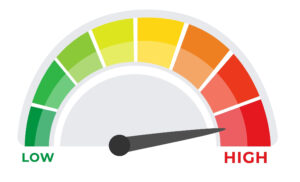Understanding Hypothermia: Stages and Symptoms
When body temperature begins to fall towards 35 degrees Celsius, the initial signs of discomfort and cold sensation appear, with shivering as a natural response to generate heat. Hypothermia, a critical condition, progresses through three distinct stages: mild, moderate, and severe, each characterized by specific symptoms.
Stages and Symptoms of Hypothermia
Stages and Symptoms of Hypothermia start with mild hypothermia, where body temperature drops to between 32 and 35 degrees Celsius. At this stage, symptoms are subtle yet progressive, including persistent shivering, fatigue, and lethargy. Individuals may experience cold and pale skin, quickened breathing or hyperventilation, and signs of confusion coupled with diminished judgment abilities.
Moderate Hypothermia
As the condition worsens to moderate hypothermia, with core temperatures falling between 28 and 32 degrees Celsius, symptoms intensify significantly. Affected persons might display clear cognitive impairments, such as reduced attention span and escalated confusion. Unusual behaviors like paradoxical undressing can occur due to distorted temperature perception. Additional symptoms include impaired motor coordination, sluggish movements, drowsiness, slurred speech, and cessation of shivering—indicative of the body’s declining heat production capacity. At this juncture, urgent medical intervention is imperative.
Severe Hypothermia
In severe hypothermia, where the temperature dips below 28 degrees Celsius, conditions become critical, presenting life-threatening symptoms. These include unresponsiveness, shallow or halted breathing, faint or absent pulse, dilated pupils, and skin that feels icy and appears pale or blue. Even if the affected person seems beyond help, emergency medical treatment is essential, as hospital care can sometimes reverse even the direst impacts of hypothermia.
Conclusion
Fully comprehending the “Stages and Symptoms of Hypothermia” is crucial for recognizing the progression of this hazardous condition. Early detection and prompt treatment can dramatically enhance recovery prospects and prevent the escalation of symptoms to a more dangerous stage.



Leave a Reply